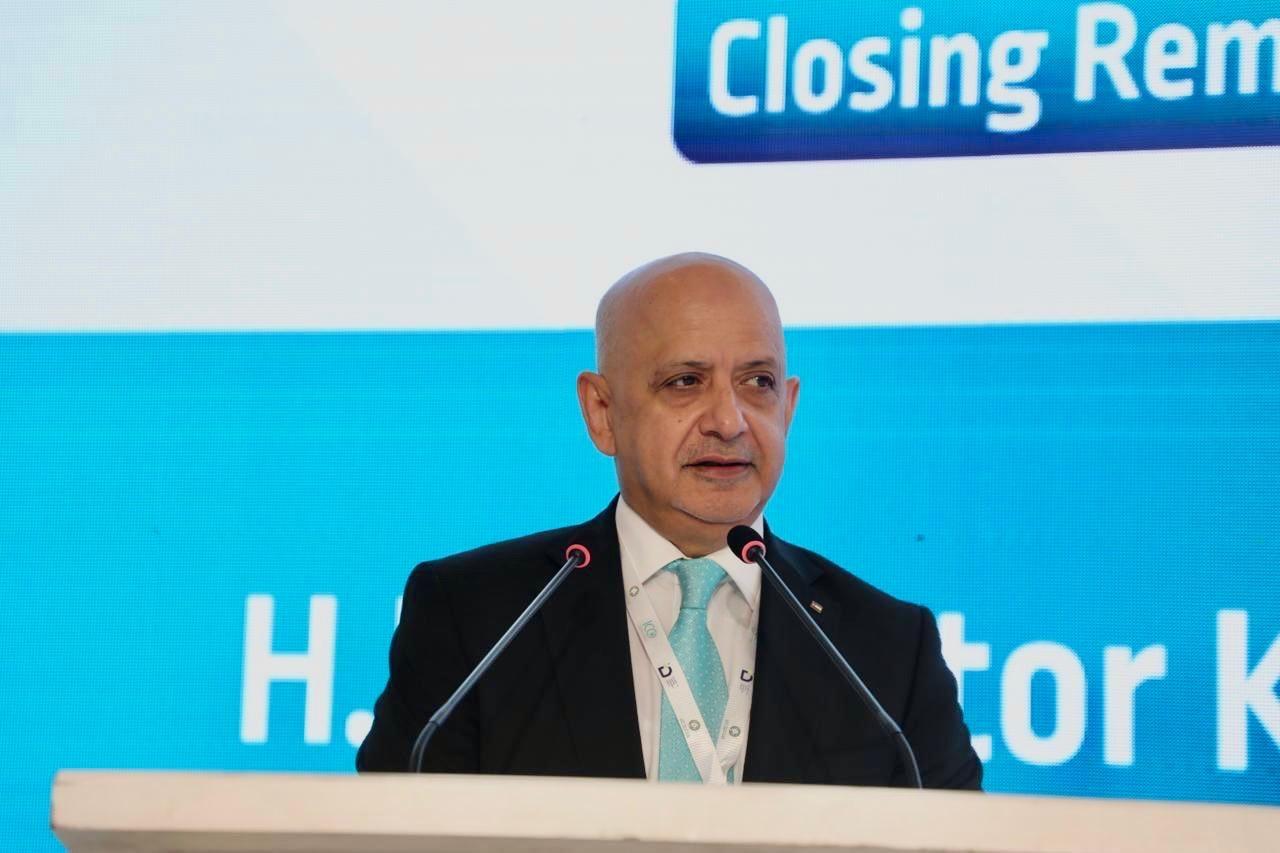
403
Sorry!!
Error! We're sorry, but the page you were looking for doesn't exist.
Jordan Forum Pushes For Digital Economy Investment To Drive Growth Across Islamic Markets
(MENAFN- Jordan News Agency)
Amman, Sept. 23 (Petra) -- A digital economy forum convened in Amman under Royal patronage has urged member states of the Organization of Islamic Cooperation (OIC) to accelerate capital flows into the digital sector, framing digital transformation as a structural driver of GDP growth, employment creation, and long-term competitiveness.
The "Invest in Digital Economy" forum, organized by the Jordan Chamber of Commerce in partnership with the Islamic Chamber of Commerce and Development, positioned digital integration as a cornerstone of sustainable economic policy. Delegates emphasized the need to align fiscal incentives, regulatory frameworks, and cross-border partnerships to unlock value in fintech, artificial intelligence, cybersecurity, and digital infrastructure.
Final recommendations, read by Chamber President Khalil Al-Haj Tawfiq, underscored the urgency of scaling public-private partnerships and leveraging venture capital to accelerate the startup ecosystem. Proposals included flexible tax regimes, targeted exemptions, special economic zones for technology industries, and investments in next-generation infrastructure to attract foreign direct investment (FDI).
Youth employment and skills development were identified as key policy levers. Participants stressed that channeling resources into digital upskilling and entrepreneurial support would generate multiplier effects across labor markets, increase productivity, and strengthen the region's innovation capacity.
The forum also called for Islamic economies to converge on a unified digital architecture that would reduce fragmentation, enhance interoperability, and promote financial inclusion. Such an integrated framework, participants argued, could boost intra-OIC trade, support scalable e-commerce platforms, and mitigate systemic risk through coordinated cybersecurity measures.
Jordan, positioning itself as a regional outsourcing and digital services hub, highlighted its comparative advantages in ICT talent, cost competitiveness, and geographic proximity to key markets. Policymakers and investors discussed mechanisms to deepen linkages between universities, training centers, and the private sector to ensure labor market readiness and improve human capital ROI.
Sessions examined regulatory innovation in financial technology, the scalability of AI-driven solutions, and digital education reforms. Panelists pointed to the role of fintech in expanding credit access to SMEs and unbanked populations, while also stressing the importance of regulatory sandboxes to de-risk innovation.
On the macroeconomic front, the forum urged governments to embed digital transformation into fiscal and development strategies, noting its potential to diversify economies away from commodity dependence and create resilient growth models.
Bilateral meetings between chamber presidents and investors culminated in commitments to pursue joint ventures, knowledge exchange, and MoUs to support cross-border capital flows.
The Islamic Chamber of Commerce and Development headquartered in Pakistan with regional offices in Egypt, Turkey and Saudi Arabia underscored that digital economy integration could unlock a "new frontier" for OIC economies, estimated to collectively represent a $7 trillion consumer market.
Amman, Sept. 23 (Petra) -- A digital economy forum convened in Amman under Royal patronage has urged member states of the Organization of Islamic Cooperation (OIC) to accelerate capital flows into the digital sector, framing digital transformation as a structural driver of GDP growth, employment creation, and long-term competitiveness.
The "Invest in Digital Economy" forum, organized by the Jordan Chamber of Commerce in partnership with the Islamic Chamber of Commerce and Development, positioned digital integration as a cornerstone of sustainable economic policy. Delegates emphasized the need to align fiscal incentives, regulatory frameworks, and cross-border partnerships to unlock value in fintech, artificial intelligence, cybersecurity, and digital infrastructure.
Final recommendations, read by Chamber President Khalil Al-Haj Tawfiq, underscored the urgency of scaling public-private partnerships and leveraging venture capital to accelerate the startup ecosystem. Proposals included flexible tax regimes, targeted exemptions, special economic zones for technology industries, and investments in next-generation infrastructure to attract foreign direct investment (FDI).
Youth employment and skills development were identified as key policy levers. Participants stressed that channeling resources into digital upskilling and entrepreneurial support would generate multiplier effects across labor markets, increase productivity, and strengthen the region's innovation capacity.
The forum also called for Islamic economies to converge on a unified digital architecture that would reduce fragmentation, enhance interoperability, and promote financial inclusion. Such an integrated framework, participants argued, could boost intra-OIC trade, support scalable e-commerce platforms, and mitigate systemic risk through coordinated cybersecurity measures.
Jordan, positioning itself as a regional outsourcing and digital services hub, highlighted its comparative advantages in ICT talent, cost competitiveness, and geographic proximity to key markets. Policymakers and investors discussed mechanisms to deepen linkages between universities, training centers, and the private sector to ensure labor market readiness and improve human capital ROI.
Sessions examined regulatory innovation in financial technology, the scalability of AI-driven solutions, and digital education reforms. Panelists pointed to the role of fintech in expanding credit access to SMEs and unbanked populations, while also stressing the importance of regulatory sandboxes to de-risk innovation.
On the macroeconomic front, the forum urged governments to embed digital transformation into fiscal and development strategies, noting its potential to diversify economies away from commodity dependence and create resilient growth models.
Bilateral meetings between chamber presidents and investors culminated in commitments to pursue joint ventures, knowledge exchange, and MoUs to support cross-border capital flows.
The Islamic Chamber of Commerce and Development headquartered in Pakistan with regional offices in Egypt, Turkey and Saudi Arabia underscored that digital economy integration could unlock a "new frontier" for OIC economies, estimated to collectively represent a $7 trillion consumer market.

Legal Disclaimer:
MENAFN provides the
information “as is” without warranty of any kind. We do not accept
any responsibility or liability for the accuracy, content, images,
videos, licenses, completeness, legality, or reliability of the information
contained in this article. If you have any complaints or copyright
issues related to this article, kindly contact the provider above.


















Comments
No comment